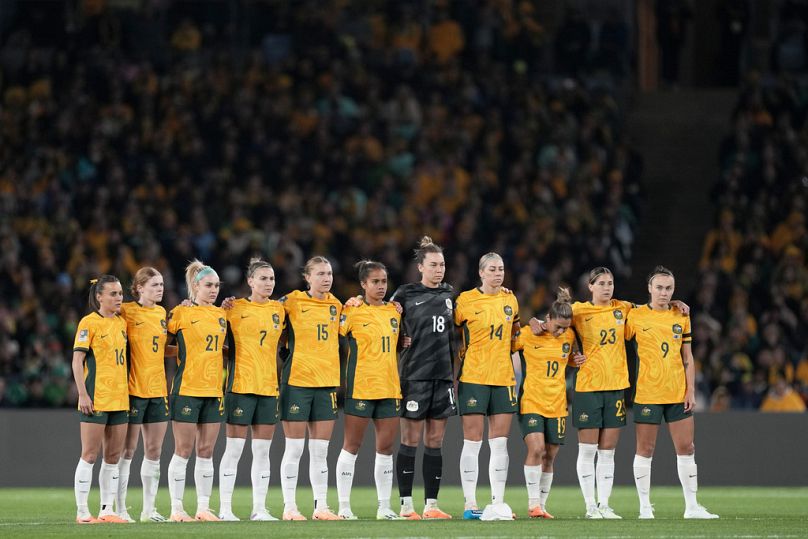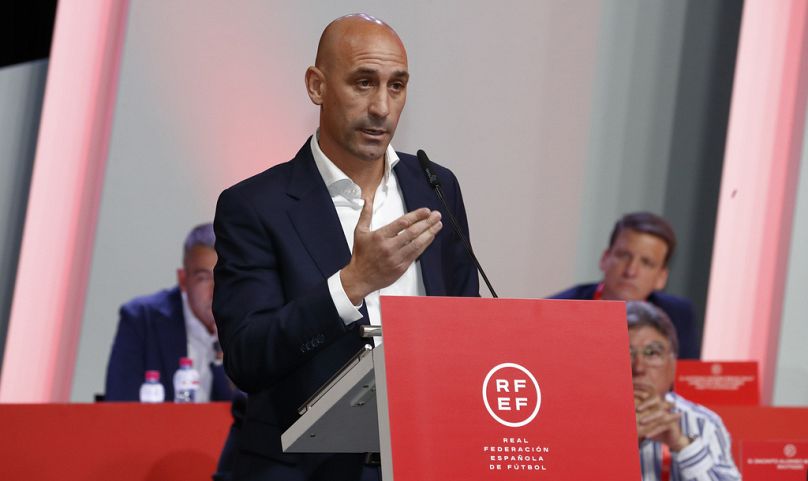In partnership with Media City Qatar. Spain were crowned world champions for the first time in Sydney.
The dust has now settled on a successful 2023 Women’s World Cup in Australia and New Zealand. After four weeks of football concluding with a showpiece final in Sydney, Spain were crowned world champions for the first time.
The Matildas made Australia proud by reaching the semi-finals, the best finish in any World Cup for the country. Off the pitch, record viewing figures and ticket sales proved that the sport has finally made it's mark down under.
Michelle Escobar, one of Australia’s leading sports presenters, told us how the event is set to inspire the next generation of Aussie footballers.
“I think, as cliché as it sounds, boys and girls now have these idols that have made it so far. When I was growing up, I didn’t have these female idols in football because women’s football wasn’t as accessible. It’s always been popular to play, but now there will actually be an avenue to be able to go professional.”
“Football doesn’t get as much funding as other bigger sports [in Australia] such as AFL, cricket and rugby league. So, hopefully this is a push that we can get more funding, especially at grassroots level.”
It’s an opinion that is shared by FIFA president Gianni Infantino. As the man responsible for delivering a successful tournament, he can be pleased with how it has panned out. He emphasised further what a watershed moment this could be for the women’s game.
“The future is definitely for women’s football, and it’s not just a PR thing. It’s really the facts and figures that show it, and you know, half of the world’s population are women. So it is obvious that this is going to grow, this is going to prosper.”
Spain’s victory at this tournament, despite the disruptions to their preparations, was very impressive. Their performance in the final was near to perfection, as they beat European champions England 1-0 in Sydney. However, the aftermath of the game has been plagued with controversy. This week the former president of the Royal Spanish Football Federation, Luis Rubiales, was forced to resign after he kissed midfielder Jenni Hermoso without consent during the trophy ceremony that followed.
Initially, FIFA made the decision to suspend Rubiales for 90 days while an investigation into the matter was conducted. However, on Sunday evening, the now former president announced his official resignation.
Also losing his job post-tournament was Spain head coach Jorge Vilda. His style of coaching was heavily criticised in the lead up to the World Cup. Many players went on strike and claimed they would continue to do so until he was removed from his post. His eventual sacking was linked to the Rubiales incident. In a show of solidarity with Hermoso, his entire backroom staff of coaches resigned from their posts. This left Vilda’s position untenable, and he was fired by the RSFF in the days that followed.
Hopefully the Spain squad can now focus on enjoying their achievement without these issues dominating media coverage of this world beating team.
It wasn’t just in Oceania where this tournament has made a big difference. Another continent that performed notably well was Africa. Their nations made all sorts of positive headlines, particularly early on in the tournament. For the first time in the women’s game, we saw three nations make it through to the knockout stages.
For African football, the last 12 months have represented a huge step forward. The success of Nigeria, Morocco, South Africa and Zambia at this tournament, combined with the Morocco men’s team making the World Cup semi-finals in Qatar last year, proves it’s a very exciting time to be following the sport in that part of the world.
“As a continent, we are still celebrating that historical moment of the Women’s World Cup,” African Business of Sport podcast host, Shon Osimbo, told us.
“We are celebrating all four teams because of this performance, it actually shows that African women’s football is a force to be reckoned with. The quality of the players is very, very good and also for the coaching staff, a huge congratulations to them because they also showed they can actually match up to the standards of other coaches across the world.”
It was a World Cup that will live long in the memory. For many nations around the world, the success of this tournament represents a pivotal moment for women’s football. The location of the 2027 event is yet to be decided. Many nations will be vying to be the next host but the 2023 tournament will be a hard act to follow.














